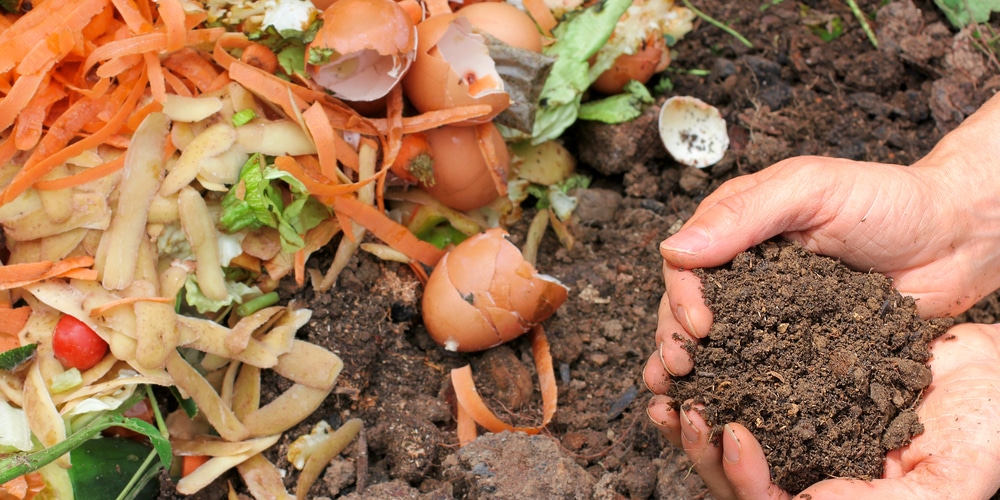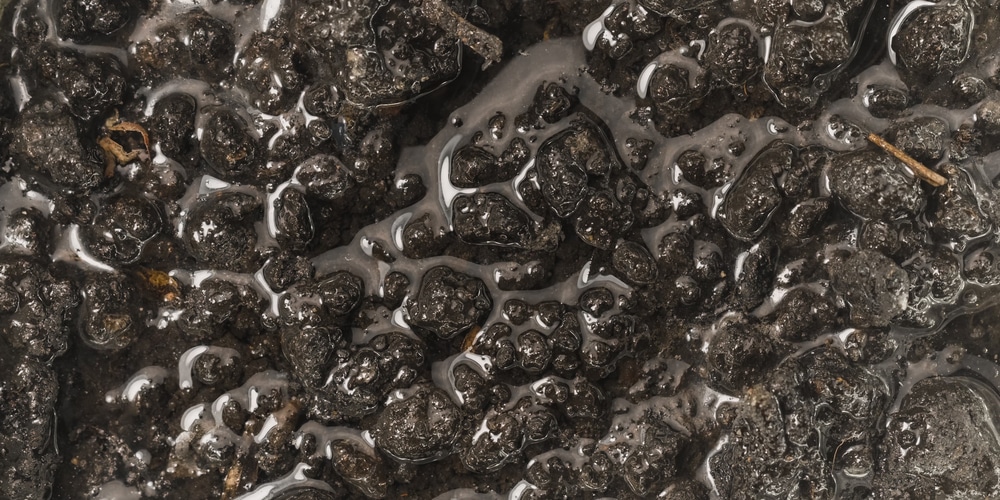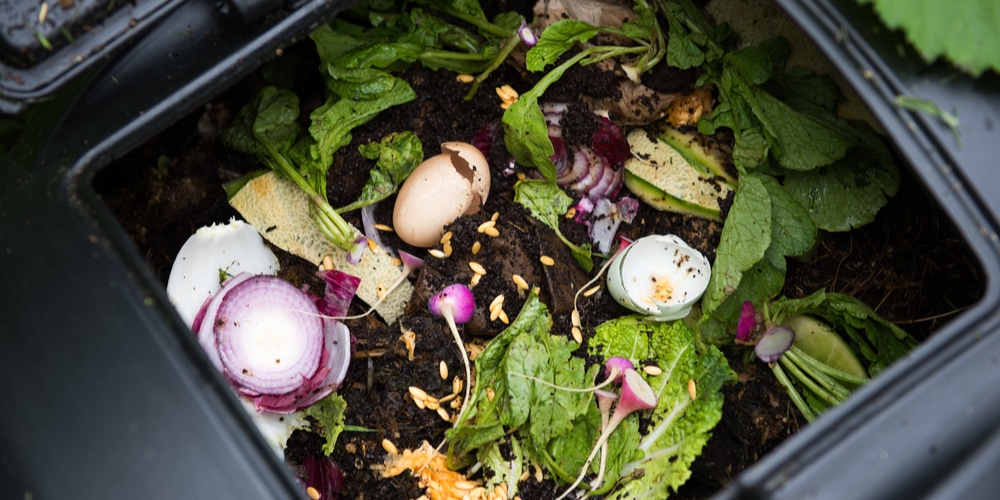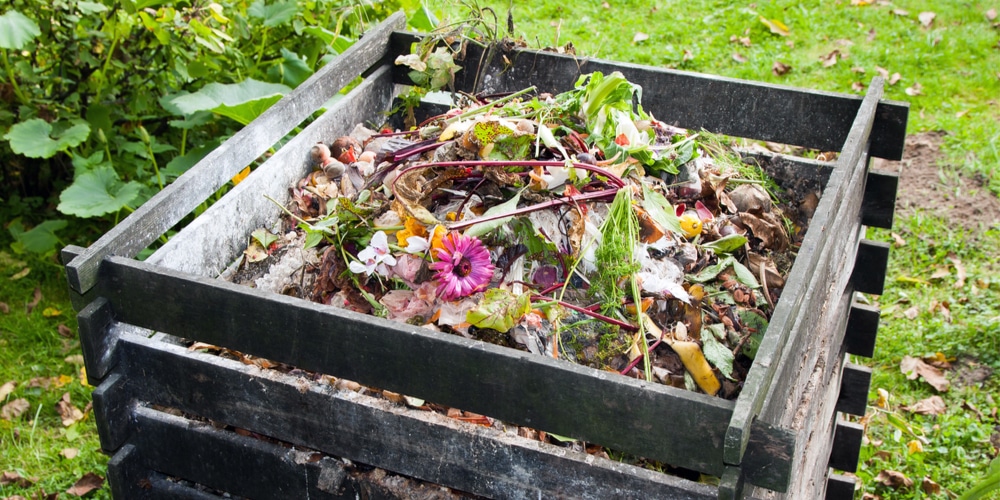Composting is a great way to recycle food scraps, garden cuttings, and grass. It also creates nutritious food for your plants. If you’ve recently started a compost pile and have found mold growing in it, you may be wondering if you did something wrong. Compost heaps can grow mold as organic matter decomposes, which is particularly common in climates with extreme temperatures.
If you’re looking for tips on creating a healthy compost heap, read on. We’ll answer the question, ‘why does my compost have mold?’
Why does my compost have mold?

Mold comes in various forms and colors, but you’ll generally see either white or green mold in your compost heap. Sludgy-looking mold that smells bad contains anaerobic bacteria and indicates that something may not be quite right.
Mold in compost is generally considered harmless, but you wouldn’t want to encourage mold to grow. Ensure that you wash your hands after handling compost, especially if it’s moldy. Also, keep young children and pets away from your compost heap, and don’t let them eat anything from it. If you have allergies, it may also be wise to wear a face mask when working with compost containing mold spores.
If you’ve added meat, dairy, or animal waste to your compost heat, this could contain harmful bacteria and mold spores. It’s best to avoid adding these items to your compost heap. If you’ve already put these items in your compost heap, it’s best not to handle your compost.
What can I do if my compost is too wet?
Mold grows in damp conditions, so you may find that your compost heap starts to get moldy due to too much moisture. You can turn your compost over regularly with a garden fork to improve airflow and dry it out.
Ensure that you’ve mixed in green garden clipping well as these can clump together. Don’t add large amounts of grass clippings to your compost pile as these compact easily and, if too moist, will go moldy and create an unpleasant brown sludge.
How to Create the Perfect Compost
While mold in your compost may not be a problem, harmful bacteria can be dangerous. To create a compost heap that’s free from mold and can decompose effectively, there are a few things you’ll need to do. Compost helps need the right mix of food scraps and garden waste, and these should be mixed with oxygen and moisture. It’s also a good idea to add compostable compounds to help everything break down.
To create a healthy compost heap, there are a few things you’ll need to avoid. The following items may encourage pests or cause bacteria and diseases. Don’t add these things to your compost heap:
Barbecue Ashes
Ash from a fire can be added to your compost heat, but it’s best to avoid barbecue ashes. Most charcoal briquets contain toxic chemicals to help them burn. These will kill plants when you spread the compost over your vegetable garden. Charcoal ash is also harmful to animals, so it should be kept away from pets. Only add barbeque ash to your compost heap if you know its origins and know that it doesn’t contain harsh chemicals.
Meat and Dairy
It’s best not to add meat or dairy products to your compost as these may rot and go moldy rather than decompose to make compost. Rotting meat can be particularly unpleasant and will attract pests, including flies, rodents, and cockroaches.
Pet Waste
Don’t add dog poo to your compost heap, as this contains bacteria that can cause disease. You don’t want to spread compost containing dog poo around your garden. Waste from small vegetarian animals such as rabbits and guinea pigs may be added to your compost.
Non-Compostable Material
Noncompostable materials such as plastic, metal, glass, polystyrene, or magazines should be recycled or put in the trash rather than the compost. Non-organic materials will take years to decompose and may even be dangerous in the future when you spread the compost in your garden.
Treated Plant Matter
Don’t add cuttings from plants to your compost if you’ve used products such as insecticides or weed killers, as this will add harmful chemicals to your garden. The chemicals can also kill off beneficial bacteria and micro-organisms in your compost pile.
Caring for your compost heap
Another way to avoid mold growth is to ensure your compost heap gets the right amount of moisture and is regularly aerated.
Moisture
Compost heaps should be kept wet enough to allow microorganisms, good bacteria, and insects to live and breed. If your compost heat is too dry, it won’t support life and won’t decompose.
However, overwatering your compost heap will make it soggy and can encourage mold and harmful bacteria to grow. If your compost is too wet, it will end up smelling foul and will become a sludgy mess.
You can test your compost by squeezing a handful. If only a drop or two of water is produced, your compost heap has the right moisture and is in good health. A stream of water indicates it’s too wet, while if you can squeeze any water out of your compost, it’s too dry.
Oxygen
Good bacteria need oxygen to help them thrive and decompose your compost. You can aerate your compost heap by turning it regularly with a garden fork. You can also mix some hay or dried leaves into your compost heap to create air pockets aerate it.
Conclusion
Healthy compost heaps don’t generally contain much mold. While some molds aren’t a problem, others contain bad bacteria and should be avoided. Avoiding putting meat, dairy, and dog poo in your compost heap will reduce the mold.
Add a mix of green garden waste such as grass and kitchen scraps to help good bacteria multiply and decompose your compost heap. It’s a good idea to regularly turn your compost heap or add hay to improve the airflow. Don’t let your compost heap get too wet.
Related:
Are Clamshells Good for Compost?
Are Pistachio Shells Good for Compost?


